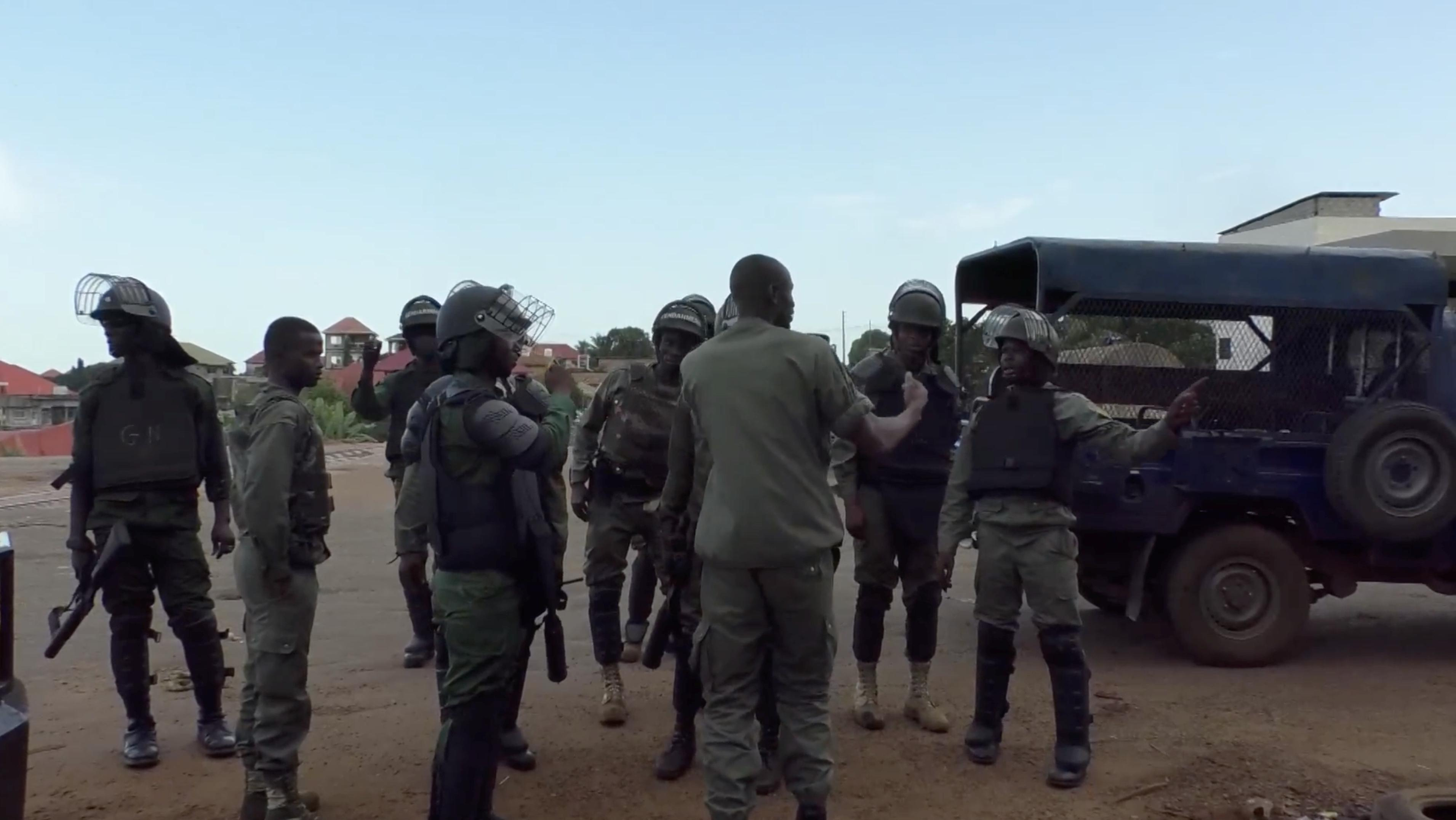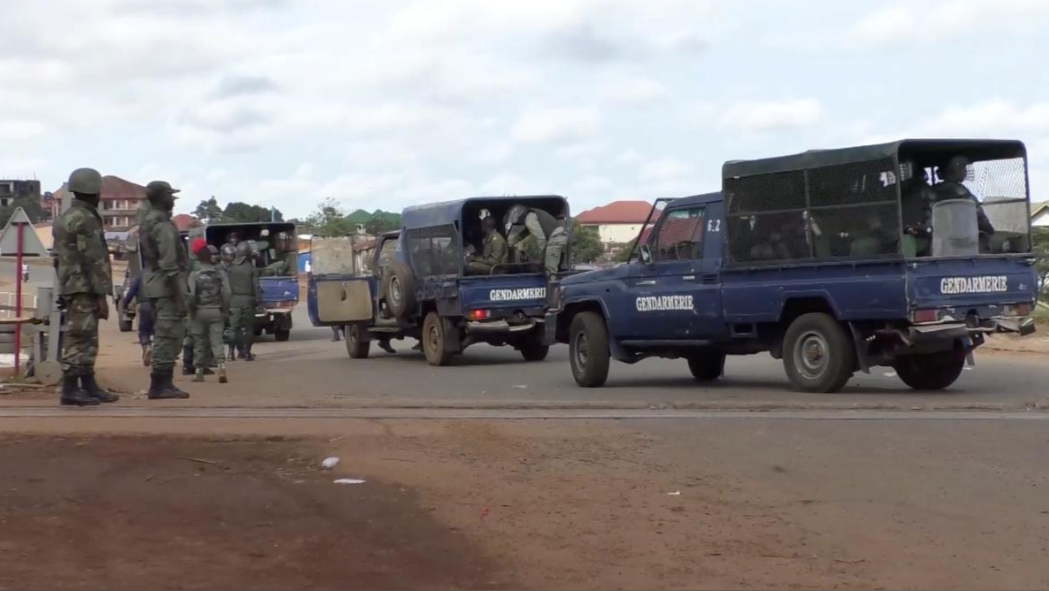At least one policeman and a protester were killed on Monday during demonstrations in Guinea against a possible change to the constitution that could let President Alpha Conde seek a third term, officials and residents said.
Police opened fire on demonstrators as they ransacked military posts and blocked roads with burning tires in the capital Conakry, and protests in the northern opposition stronghold of Mamou also turned violent, witnesses said.
Conde's second and final five-year term expires in 2020, but the 81-year-old leader has refused to rule out running again. He asked his government last month to look into drafting a new constitution, sparking calls from opposition leaders for a series of demonstrations, starting this week.
A doctor at a hospital in Conakry said one protester was shot dead in the capital. Residents in Mamou said a paramilitary policeman was beaten to death by protesters.

Riot police gather near a main road blocked by protesters in Sonfonia District in Conakry, Guinea, October 14, 2019. /Reuters Photo
Riot police gather near a main road blocked by protesters in Sonfonia District in Conakry, Guinea, October 14, 2019. /Reuters Photo
Government spokesman Damantang Albert Camara said a protester in Conakry and a gendarme in Mamou had been shot dead.
"The goal of the demonstration, which was meant to be insurrectional, was clearly to provoke a violent response from the military to cause a lot of deaths in order to inflame the situation," he said.
Opposition leader Cellou Diallo, who came second behind Conde in 2010 and 2015 presidential elections, told reporters that four protesters had been shot dead in Conakry. He said at least 38 people had been wounded in Conakry and Mamou.
"We encourage citizens to continue to demonstrate – today, tomorrow, the day after tomorrow – until our legitimate demands are satisfied," he said. "We need a clear, firm and irrevocable declaration from Alpha Conde renouncing a third term."
On Monday, security forces blocked the opposition leaders who had called for the demonstrations from leaving their homes. Several civil society leaders were detained over the weekend.
In Guinea, political protests, labor strikes and demonstrations against companies mining the country's vast bauxite reserves often turn violent.

Riot police gather near a main road blocked by protesters in Sonfonia District in Conakry, Guinea, October 14, 2019. /Reuters Photo
Riot police gather near a main road blocked by protesters in Sonfonia District in Conakry, Guinea, October 14, 2019. /Reuters Photo
There were also mostly peaceful protests on Monday in Boke, the bauxite mining hub, and the northern towns of Labe, Telimele and Koundara, residents said. Guinea has the world's biggest reserves of bauxite, the ore used to make aluminum.
Some employees of the Guinea Bauxite Company (CBG) mine in Boke were unable to get to work because of barricades in the streets, slowing operations there, a CBG official told Reuters.
Conde's first election win in 2010 raised hopes for democratic progress in Guinea after two years of military rule and nearly a quarter a century under authoritarian President Lansana Conte, who died in 2008.
Conde's opponents, however, say he has cracked down on dissent since coming to power after years as an opposition figurehead campaigning to defeat Conte.
(Cover: Protesters throw stones at a riot police vehicle on a main road in Sonfonia District in Conakry, Guinea October 14, 2019. /Reuters Photo)
Source(s): Reuters